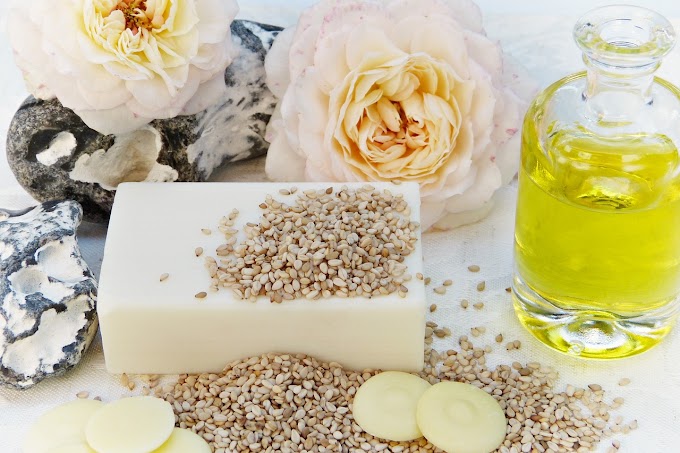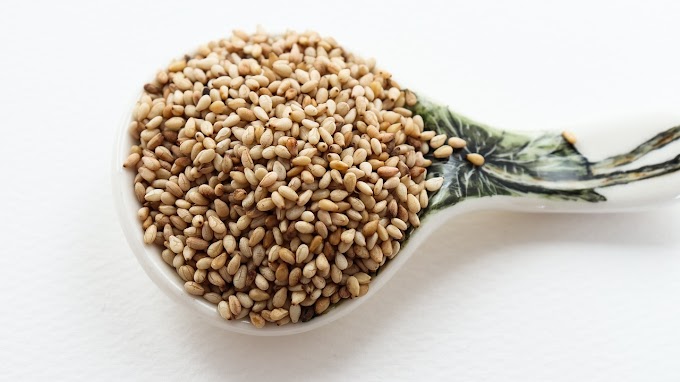Introduction
Hair loss, a common concern affecting individuals globally, has been a subject of immense research and exploration across various medical systems. Ayurveda, an ancient holistic healing system that originated in India, offers a unique and natural approach to addressing hair loss. Ayurvedic treatments for hair loss focus on restoring balance within the body, promoting overall well-being, and targeting the root causes of hair fall. This article delves into the principles of Ayurveda and explores the diverse methods it employs to combat hair loss.Ayurveda
Ayurveda, often referred to as the "science of life," is a traditional system of medicine that has been practiced for thousands of years. According to Ayurvedic principles, the body is composed of three doshas—Vata, Pitta, and Kapha—which represent different combinations of the five elements (earth, water, fire, air, and ether). Hair loss is believed to be a result of an imbalance in these doshas, leading to disrupted energy flow and impaired nourishment of hair follicles. |
| Hair Loss |
Ayurvedic Treatment for Hair Loss
Causes of Hair Loss in Ayurveda:Ayurveda identifies several factors that contribute to hair loss, including dietary habits, stress, hormonal imbalances, and environmental influences. Poor digestion, excess heat in the body (Pitta imbalance), and accumulation of toxins (ama) are considered key culprits that can compromise the health of hair.
Ayurvedic Approaches to Combat Hair Loss:
Dietary Changes: Ayurveda emphasizes the importance of a balanced diet for maintaining overall health, including hair health. Foods rich in iron, protein, and vitamins, such as leafy greens, nuts, seeds, and dairy products, are recommended. Avoiding excessive intake of spicy, oily, and processed foods is also advised to prevent aggravation of Pitta dosha.Herbal Remedies: Ayurvedic herbs have been integral in the treatment of various ailments, including hair loss. Amla (Indian gooseberry), Bhringraj, Brahmi, Neem, and Aloe Vera are among the herbs commonly used in Ayurvedic hair care formulations. These herbs are believed to nourish the scalp, strengthen hair follicles, and improve blood circulation to the hair roots.
Ayurvedic Oils and Massage: Regular oil massage, known as "Abhyanga," is a fundamental aspect of Ayurvedic hair care. Oils like coconut, almond, and sesame infused with Ayurvedic herbs are applied to the scalp to nourish and strengthen hair. This practice also helps calm the nervous system, reducing stress and promoting overall well-being.
Yoga and Meditation: Stress is considered a significant contributor to hair loss in Ayurveda. Practices like yoga and meditation are recommended to manage stress and promote relaxation. Specific yoga poses and breathing exercises (pranayama) can improve blood circulation to the scalp, supporting healthy hair growth.
Ayurvedic Cleansing Techniques: Ayurveda places great importance on internal cleansing to eliminate toxins from the body. Panchakarma, a set of detoxification procedures, is recommended to purify the body and balance the doshas. These procedures may include Virechana (purgation) and Nasya (nasal administration of herbal oils).
Lifestyle Modifications: Ayurveda advocates for a balanced and mindful lifestyle to maintain overall health. Following a regular daily routine (Dinacharya) and seasonal practices (Ritucharya) are crucial in preventing imbalances that may lead to hair loss.
Ayurvedic Supplements: In addition to a balanced diet, Ayurveda recommends specific supplements to address nutritional deficiencies that may contribute to hair loss. These supplements often include herbal formulations designed to support hair health, such as Triphala, Ashwagandha, and Shatavari. These herbs are chosen for their rejuvenating properties and ability to nourish the body from within.
Ayurvedic Hair Masks and Pastes: External application of natural hair masks and pastes is a common Ayurvedic practice. Mixtures of Ayurvedic herbs like Amla, Bhringraj, and Fenugreek, along with yogurt or coconut milk, are applied to the scalp and hair. These formulations are believed to strengthen hair follicles, prevent premature graying, and add luster to the hair.
Gemstone Therapy: Ayurveda incorporates gemstone therapy as a means to balance the doshas and promote hair health. Gemstones like Amethyst, Moonstone, and Emerald are associated with cooling properties and are believed to help pacify excess Pitta dosha, which is often linked to hair loss.
Ayurvedic Lifestyle Recommendations: Ayurveda places significant emphasis on aligning daily activities with natural rhythms. Going to bed early, waking up with the sun, and maintaining regular meal times are all essential for maintaining balance. Ayurvedic experts also recommend avoiding excessive sun exposure and protecting the head from extreme weather conditions to prevent damage to the hair.
Dosha-Specific Approaches: Ayurvedic practitioners often tailor treatment plans based on an individual's predominant dosha. For instance, those with a Pitta-dominant constitution may be advised to avoid spicy foods and manage stress diligently, while Vata-dominant individuals may focus on warming and grounding practices to counteract the effects of excess air and ether elements.
Regular Detoxification Practices: Incorporating routine detoxification practices is crucial in Ayurvedic hair care. This may involve drinking herbal teas, such as Triphala or Ginger tea, to aid digestion and promote toxin elimination. Additionally, Ayurvedic experts may recommend periodic fasting or specific dietary cleanses to purify the body.
Ayurvedic Hair Care Rituals: Establishing a consistent and mindful hair care routine is essential in Ayurveda. This includes gentle washing with natural cleansers, avoiding harsh chemical-based hair products, and mild, herbal shampoos. Regular hair trimming is also suggested to prevent split ends and promote healthy growth.
Continual Assessment and Adjustment: Ayurvedic treatment is dynamic and responsive to changes in the individual's health and lifestyle. Regular check-ins with an Ayurvedic practitioner allow for the assessment of progress and the adjustment of treatment plans based on evolving needs.
Conclusion:
The holistic and individualized approach of Ayurvedic treatment for hair loss extends beyond mere external remedies, embracing a comprehensive lifestyle and wellness philosophy. By addressing imbalances at their root cause, Ayurveda provides a holistic solution that not only combats hair loss but also promotes overall health and vitality. Incorporating Ayurvedic principles into one's daily life, coupled with patience and commitment, can pave the way for healthier, more resilient hair and a harmonious balance within the body and mind. As with any health regimen, seeking guidance from a qualified Ayurvedic practitioner for personalized recommendations based on individual constitutions and health conditions is advisable.FAQ's
1. What is Ayurveda?Ayurveda is a traditional system of medicine that originated in ancient India. It emphasizes a holistic approach to health, focusing on balancing the mind, body, and spirit to promote overall well-being.
2. How does Ayurveda approach hair loss?
2. How does Ayurveda approach hair loss?
Ayurveda views hair loss as a result of imbalances in the body's doshas (Vata, Pitta, and Kapha) and suggests personalized treatments to restore balance and promote hair growth.
3. What are the common causes of hair loss according to Ayurveda?
3. What are the common causes of hair loss according to Ayurveda?
Ayurveda attributes hair loss to factors such as excessive stress, poor diet, hormonal imbalances, and inadequate hair care practices. These factors disrupt the dosha balance, leading to hair problems.
4. Are there specific Ayurvedic herbs for hair loss?
4. Are there specific Ayurvedic herbs for hair loss?
Yes, Ayurvedic herbs like Amla, Bhringraj, Brahmi, Neem, and Fenugreek are commonly used to promote hair health. These herbs are believed to nourish the scalp, strengthen hair follicles, and prevent hair loss.
5. How can Ayurvedic oils help with hair loss?
5. How can Ayurvedic oils help with hair loss?
Ayurvedic oils, such as coconut oil infused with herbs like Amla and Bhringraj, are used for regular scalp massage. This practice is thought to improve blood circulation, nourish hair follicles, and strengthen the roots, reducing hair fall.
6. Can Ayurveda help with dandruff and itchy scalp issues?
6. Can Ayurveda help with dandruff and itchy scalp issues?
Yes, Ayurvedic remedies often include herbs with anti-fungal and anti-inflammatory properties, like Neem and Tea Tree Oil, to address dandruff and soothe an itchy scalp.
7. Is diet important in Ayurvedic hair care?
7. Is diet important in Ayurvedic hair care?
Absolutely. Ayurveda emphasizes the role of diet in maintaining overall health, including hair health. A balanced and nutritious diet tailored to one's dosha is recommended to address the root causes of hair loss.
8. How long does it take to see results with Ayurvedic treatments for hair loss?
8. How long does it take to see results with Ayurvedic treatments for hair loss?
Results vary depending on the individual's condition and adherence to Ayurvedic practices. Consistent application of Ayurvedic remedies, along with lifestyle and dietary changes, may take several weeks to months to show noticeable improvement.
9. Are there any side effects of Ayurvedic treatments for hair loss?
9. Are there any side effects of Ayurvedic treatments for hair loss?
Ayurvedic treatments are generally considered safe, but individual reactions can vary. It's crucial to use genuine Ayurvedic products and consult with a qualified Ayurvedic practitioner to ensure proper guidance and avoid adverse effects.
10. Can Ayurveda prevent hereditary hair loss?
10. Can Ayurveda prevent hereditary hair loss?
While Ayurveda may help manage and slow down the progression of hereditary hair loss, complete prevention may not be guaranteed. Individual responses vary, and consultation with an Ayurvedic professional is recommended for personalized advice.
Remember, before starting any new treatment, it's essential to consult with a healthcare professional or an Ayurvedic practitioner, especially if you have underlying health conditions or are taking medications.
Remember, before starting any new treatment, it's essential to consult with a healthcare professional or an Ayurvedic practitioner, especially if you have underlying health conditions or are taking medications.







